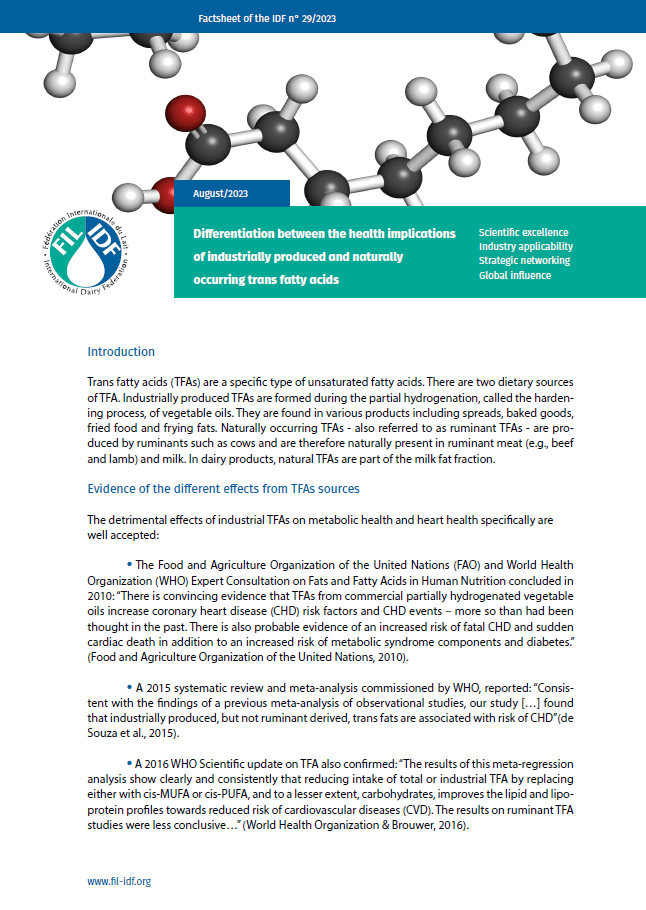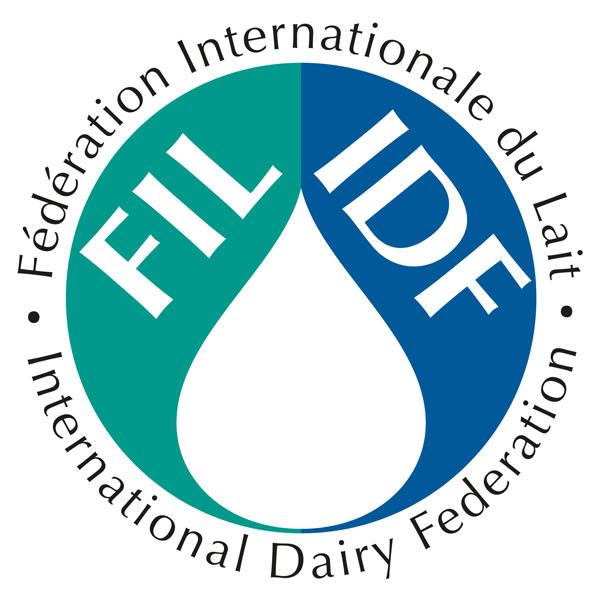Factsheet of the IDF N° 29/2023: Differentiation between the health implications of industrially produced and naturally occurring trans fatty acids
Trans fatty acids (TFAs) are a specific type of unsaturated fatty acids. There are two dietary sources of TFA. Industrially produced TFAs are formed during the partial hydrogenation, called the hardening process, of vegetable oils. They are found in various products including spreads, baked goods, fried food and frying fats. Naturally occurring TFAs - also referred to as ruminant TFAs - are produced by ruminants such as cows and are therefore naturally present in ruminant meat (e.g., beef and lamb) and milk. In dairy products, natural TFAs are part of the milk fat fraction.
Couldn't load pickup availability
Document info
| published date | 31 August 2023 |
|---|
Publication description
Trans fatty acids (TFAs) are a specific type of unsaturated fatty acids. There are two dietary sources of TFA. Industrially produced TFAs are formed during the partial hydrogenation, called the hardening process, of vegetable oils. They are found in various products including spreads, baked goods, fried food and frying fats. Naturally occurring TFAs - also referred to as ruminant TFAs - are produced by ruminants such as cows and are therefore naturally present in ruminant meat (e.g., beef and lamb) and milk. In dairy products, natural TFAs are part of the milk fat fraction.
Cite this content as:
International Dairy Federation. (2023). Differentiation between the health implications of industrially produced and naturally occurring trans fatty acids (Factsheet of the IDF n° 29/2023). https://doi.org/10.56169/PYUE8246


